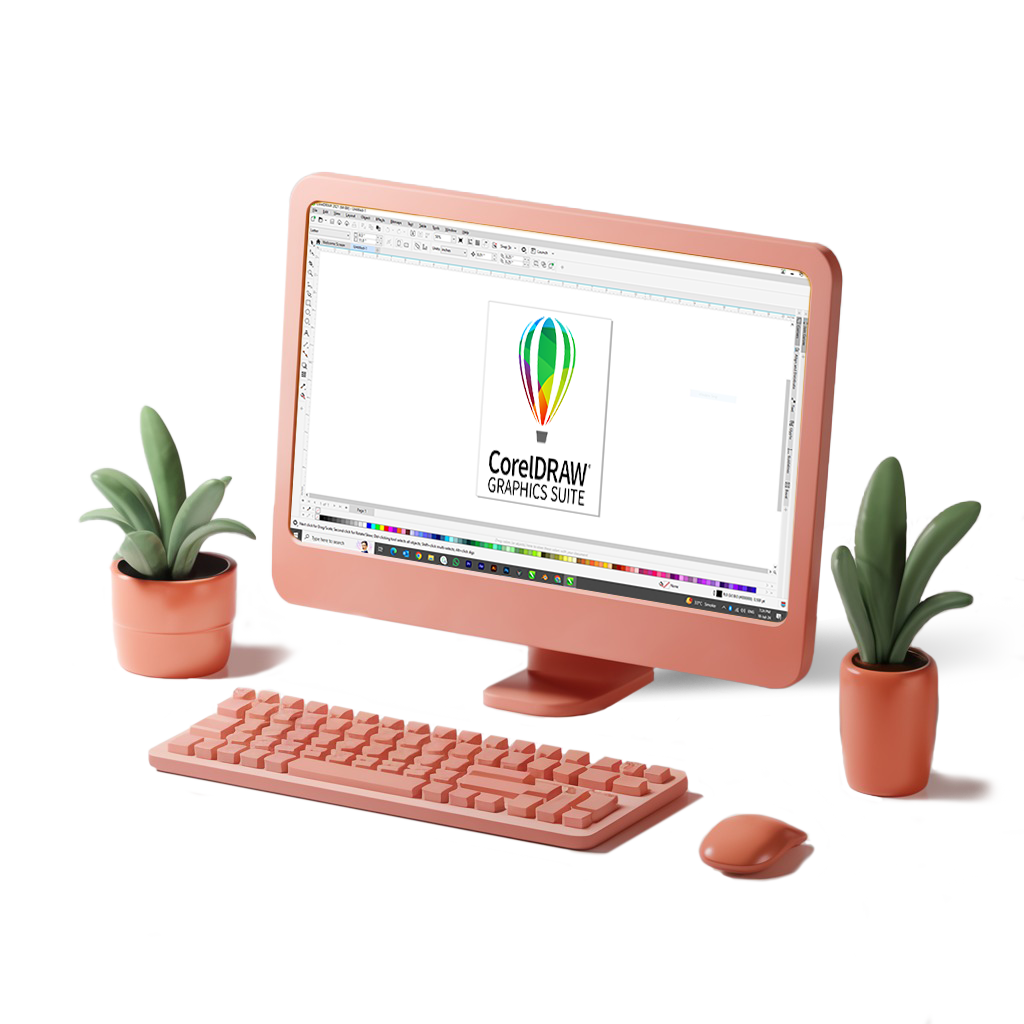

Graphic design is a fascinating field that combines creativity with technical skills. In this blog, we will explore fundamental concepts related to color and size in graphic design, specifically using CorelDRAW. Understanding these concepts is essential for creating visually appealing and effective designs. Let's dive in!
Thank you for reading this post, don't forget to subscribe!Color plays a crucial role in graphic design. It not only enhances the aesthetic appeal of a design but also communicates information and evokes emotions. When designing, the choice of color can significantly impact how the audience perceives the design.
Consider the example of a mango illustration. If the mango is colored green, it may suggest that it is unripe. Conversely, if it is yellow or orange, it indicates ripeness. This illustrates how color can provide additional information about an object in a design.
When working with graphic design, it’s important to understand the different color models used for various media. There are primarily two types: RGB and CMYK.
Understanding when to use each color model is essential for achieving the desired results in your designs. For instance, if you are designing for a digital display, always opt for RGB. If you are preparing for print, switch to CMYK.
Just as color is important, size also plays a vital role in graphic design. The dimensions of your design can affect its effectiveness and clarity. Different platforms and media have specific size requirements that need to be adhered to for optimal presentation.
When creating designs for digital platforms, such as social media, it’s essential to know the recommended sizes. For example, a common size for Instagram posts is 1080 x 1080 pixels. This square format is ideal for maintaining a uniform look on social media feeds.
Another popular size for digital media is 1080 x 1920 pixels, which is often used for stories on platforms like Instagram and Facebook. Different platforms may have varying size requirements, so being aware of these can help you create designs that fit perfectly.
In contrast to digital media, print media has its own set of size specifications. For instance, if you are designing a business card, you might use dimensions in centimeters or inches. A standard business card size is typically 3.5 x 2 inches.
When working with print designs, it’s crucial to be aware of the size requirements for different types of materials. For example, a flyer may have different dimensions compared to a banner. Knowing these specifications will ensure your designs look professional and are easy to read.
Understanding color and size is fundamental for anyone looking to excel in graphic design using CorelDRAW. By mastering these concepts, you can create designs that not only look great but also communicate effectively with your audience.
As you continue your journey in graphic design, remember to keep experimenting with colors and sizes to find what works best for your projects. Happy designing!
WhatsApp us